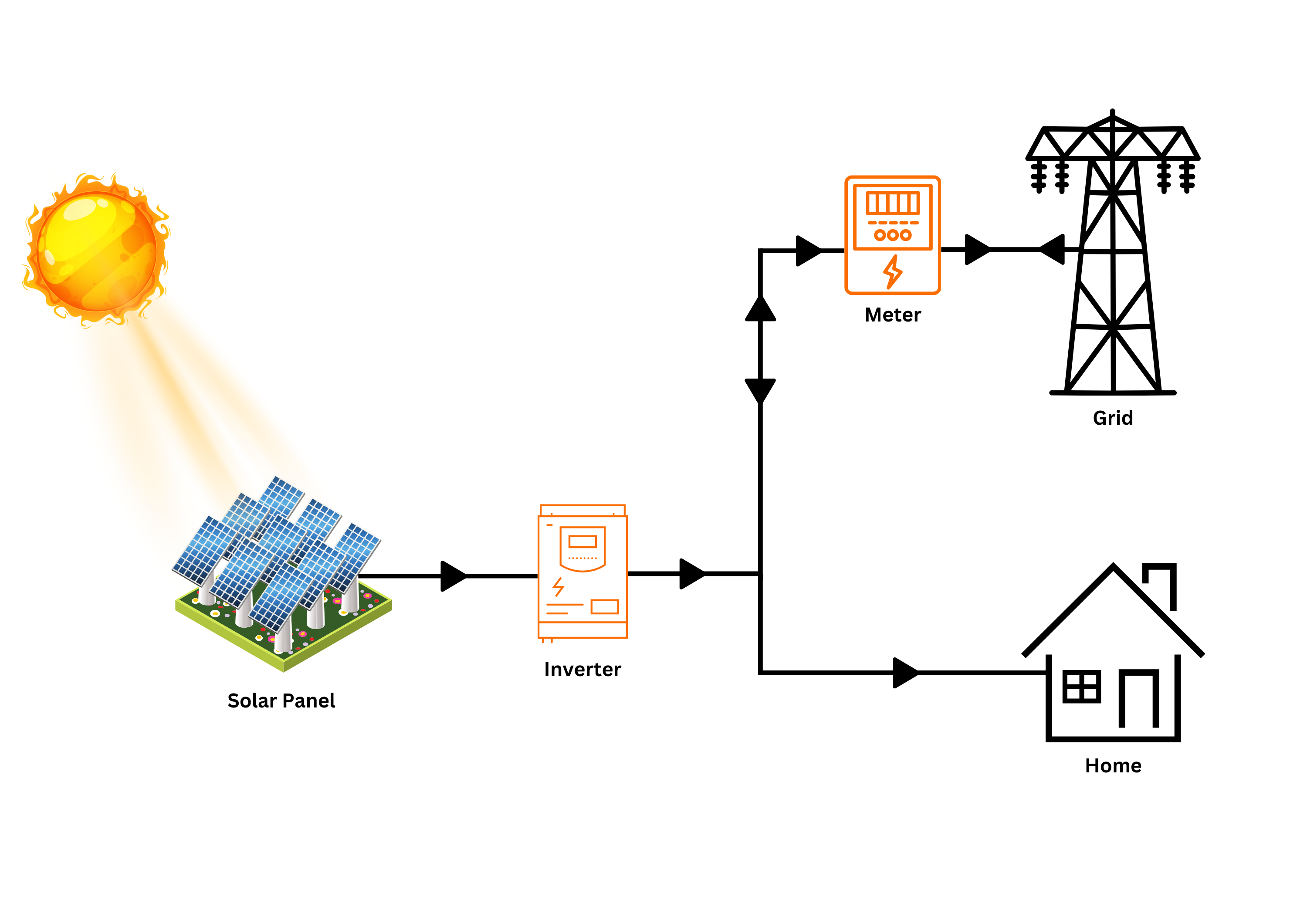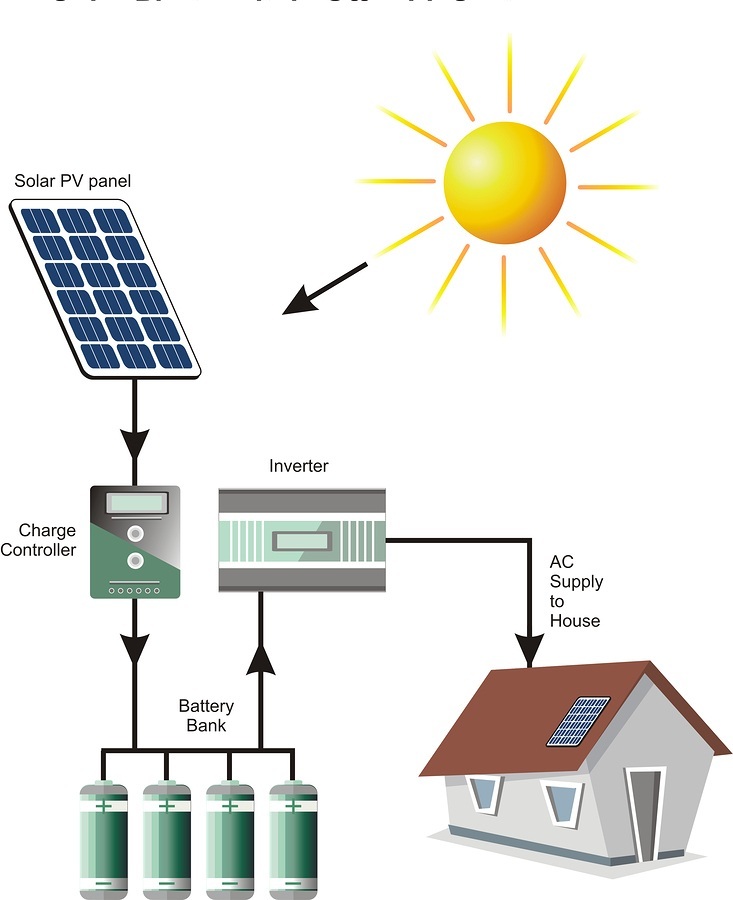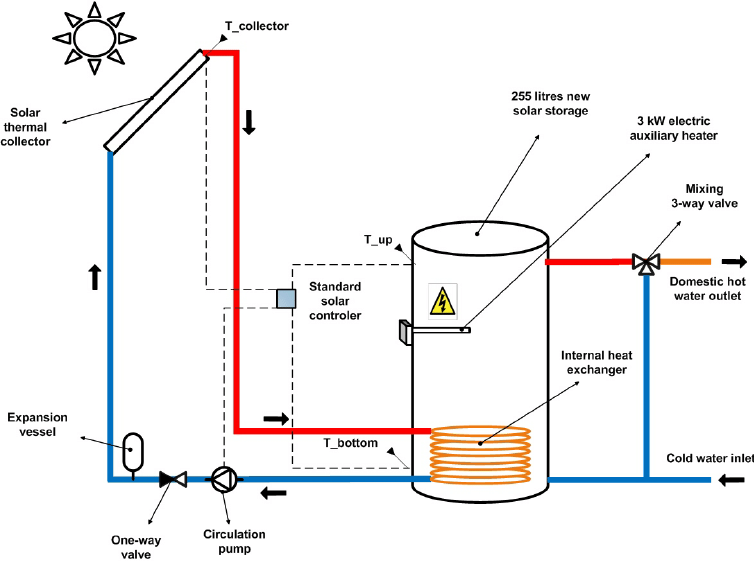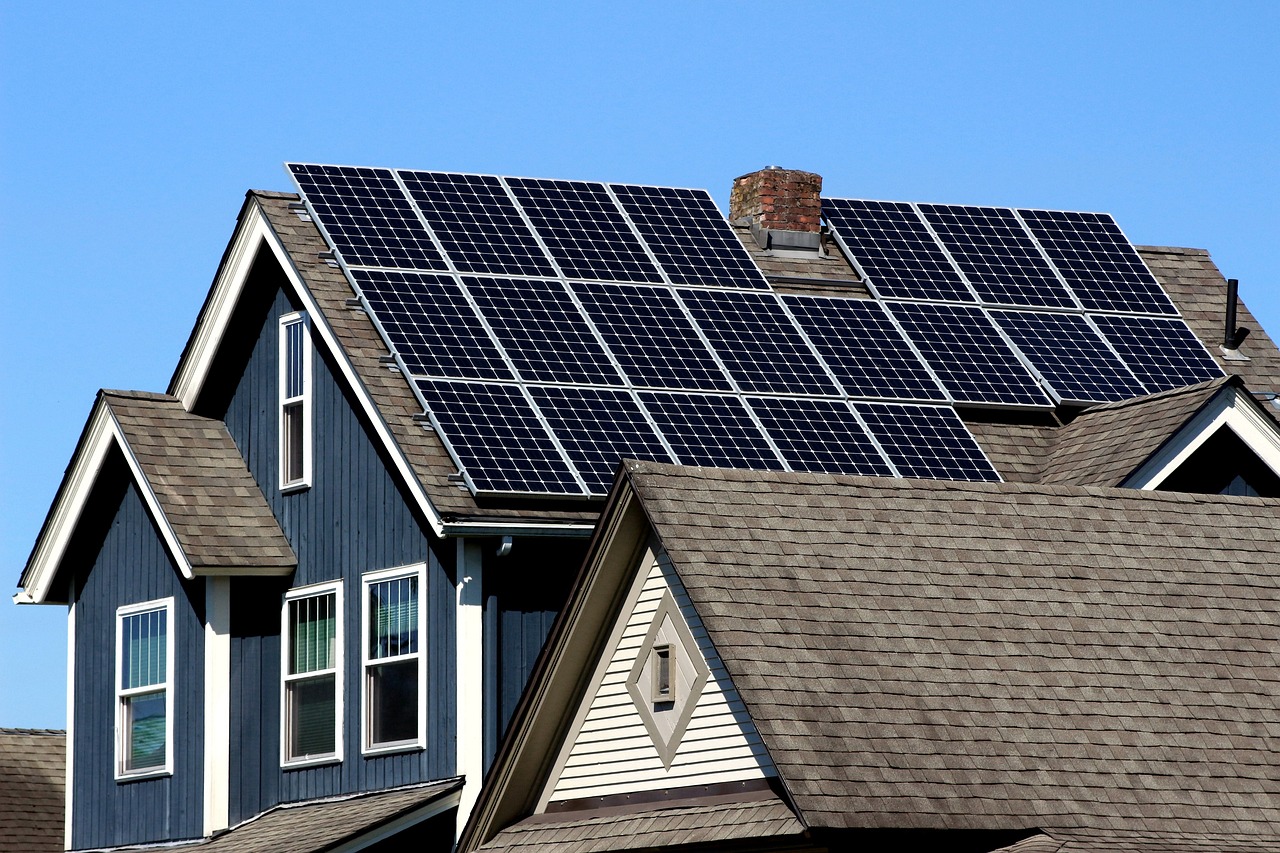Our Services

ON-GRID SYSTEM
On-grid solar PV systems epitomize a seamless integration of sustainable energy into our power grids. These systems operate in harmony with utility power grids, relying on their availability to generate electricity. As a leading solar installation company in Indore , we ensure that these solar systems become an active contributor to the energy ecosystem. During periods of overproduction, any surplus power generated can be efficiently redirected back to the grid, earning credits for future use.
On-grid systems are intricately linked to utility power grids, ensuring a continuous and reliable energy supply.
Excess electricity generated serves a dual purpose—meeting immediate energy needs and earning credits when fed back into the grid.
These systems are designed for minimal upkeep, offering a hassle-free and efficient energy solution.
On-grid systems exhibit remarkable scalability, making them suitable for supporting large plant sizes and diverse energy demands.
On-grid systems eliminate the need for energy storage, contributing to cost savings.
The grid acts as both a supplier and recipient of energy, ensuring stability and reliability.
OFF-GRID SYSTEM
PP & APS Solar offers comprehensive off-grid solar system solutions for reliable, independent power. Their services include site assessment, custom system design, professional installation, and ongoing maintenance. They provide high-quality solar panels in Indore, along with batteries and inverters tailored to specific energy needs. With expertise in hybrid systems, advanced monitoring, and 24/7 technical support, PP & APS Solar ensures optimal performance and customer satisfaction. Ideal for remote homes, agricultural uses, and emergency backup, their off-grid solutions promote sustainability and energy independence.
Off-grid systems use batteries to store surplus solar energy, enabling self-sufficiency during grid disruptions.
Ideal for small-scale applications, such as villages and farmhouses, where connection to the power grid is impractical.
Users can rely on stored energy, fostering independence from external power sources.
Off-grid systems generally require more maintenance compared to their on-grid counterparts due to the reliance on stored energy.
Perfect for remote locations or areas where connecting to the power grid is economically unfeasible.


HYBRID SYSTEM
In an age where energy resilience is non-negotiable, hybrid systems emerge as groundbreaking solutions, offering a harmonious blend of traditional grid connectivity and cutting-edge battery technology. This hybrid approach ensures a constant power supply, irrespective of external factors, and stands as a testament to the evolving landscape of energy infrastructure.
During periods of stable grid operation, the hybrid system taps into the conventional power grid, drawing energy to meet immediate demands. Simultaneously, it utilizes surplus energy to intelligently charge its connected battery storage, acting as a forward-thinking energy reservoir.
The true prowess of a hybrid system reveals itself when the grid encounters interruptions. In a swift response, the system seamlessly transitions to battery power, ensuring uninterrupted energy supply. This feature is especially crucial for critical operations where downtime is not an option, offering a reliable and instantaneous backup when needed the most.
One of the defining features of hybrid systems is their ability to operate with precision through advanced energy management systems. Users can dictate the system’s behavior, customizing energy source priorities to optimize cost, sustainability, or a combination of both. This level of control empowers individuals and businesses to tailor their energy consumption strategies according to their unique needs.
Hybrid systems are not just about reliability; they play a pivotal role in the global shift towards sustainable energy practices. By incorporating renewable energy sources, such as solar or wind, into the grid-battery interplay, these systems contribute to a cleaner, greener energy landscape. This dual-functionality aligns with the growing commitment to environmentally conscious energy solutions.
As technology advances and the demand for uninterrupted power rises, hybrid systems stand as beacons of innovation and adaptability. Their ability to seamlessly navigate the dynamic energy landscape positions them as key players in the future of energy infrastructure. With the potential to revolutionize how we consume and manage power, hybrid systems are not just a solution for today but a visionary step towards a resilient and sustainable energy future.
SOLAR WATER HEATING SYSTEMS
PP & APS Solar offers efficient and sustainable solar water heating systems for residential, commercial, and industrial use. Key components include high-quality solar collectors, insulated storage tanks, and advanced control systems. Services include consultation, custom system design, professional installation, and ongoing maintenance. These systems significantly reduce energy bills and carbon footprint, offering a durable and eco-friendly solution for hot water needs.
A standard solar water heating system with a daily capacity of 100 litres can make a profound impact on energy conservation. By utilizing the sun’s abundant and renewable energy, these systems can save up to 1500 units of electricity annually. This not only reduces the strain on conventional power sources but also lessens the environmental footprint associated with electricity generation.
The financial benefits of solar water heating systems are substantial. With the ability to harness solar energy for water heating, these systems dramatically reduce the dependence on grid electricity or gas. The result is a noticeable decrease in utility bills, translating into long-term cost savings for homeowners and businesses alike.
Opting for solar water heating is a proactive step towards environmental responsibility. By relying on the sun’s energy instead of traditional power sources, these systems significantly reduce greenhouse gas emissions associated with electricity production. This sustainable approach aligns with global initiatives to combat climate change and promote cleaner, greener energy alternatives.
Solar water heating systems are renowned for their reliability and low maintenance requirements. Once installed, these systems operate seamlessly with minimal intervention, ensuring a continuous and efficient water heating process. This reliability not only enhances user convenience but also contributes to the long-term durability of the system.
Governments around the world recognize the environmental and economic benefits of solar technologies. Many offer incentives, tax credits, and rebates to encourage the adoption of solar water heating systems. Taking advantage of these programs not only makes the initial investment more accessible but also enhances the overall cost-effectiveness of transitioning to solar-powered water heating.


SOLAR STREET LIGHTS
As cities evolve towards sustainability, the humble streetlight undergoes a remarkable transformation through solar technology. Solar street lights, with their elevated fixtures and eco-friendly power sources, are at the forefront of this green light revolution. Let's delve into the functionality and design that make them a beacon of sustainable urban illumination.
Solar street lights stand tall with a distinct feature – their power source arises from the sun. Positioned above the ground, these lighting fixtures host solar panels, typically situated atop the structure or seamlessly integrated into the pole. The solar panels play a pivotal role during daylight hours, capturing sunlight to charge a rechargeable battery concealed within the system.
As the sun graces the sky, the solar panels diligently convert sunlight into electrical energy, charging the internal battery. This energy storage serves as a reservoir, preparing for the inevitable transition from daylight to darkness. The charging process is both efficient and sustainable, making solar street lights a cost-effective and environmentally conscious alternative to traditional grid-powered street lighting.
As dusk descends and traditional streetlights flicker on, solar street lights come to life in a different manner. The stored energy within the rechargeable battery powers a fluorescent or LED lamp, casting a warm, efficient glow on the streets below. This illumination is not only eco-friendly but also marks a paradigm shift towards reducing carbon footprints and embracing sustainable energy solutions.
Solar street lights often feature light-emitting diode (LED) lamps, known for their energy efficiency and longevity. LED technology not only minimizes energy consumption but also extends the lifespan of the lighting system. This choice aligns with the broader goal of creating urban environments that prioritize energy efficiency and reduce maintenance needs.
Beyond their environmental benefits, solar street lights exemplify a harmonious blend of form and function. The integration of solar panels into the lighting structure or pole ensures a seamless and aesthetically pleasing design. This integration not only enhances the visual appeal of urban landscapes but also demonstrates the potential for solar technology to be seamlessly woven into the fabric of our cities.
RESIDENTIAL SOLAR
PP & APS Solar offers comprehensive residential solar in Indore solutions to help homeowners reduce electricity costs and achieve energy independence. Services include site evaluation, custom system design, professional installation, and ongoing maintenance. Benefits include significant cost savings, lower carbon footprint, increased property value, and potential financial incentives. With high-quality components and 24/7 support, PP & APS Solar ensures a seamless transition to renewable energy.
Embrace the advantages of residential solar power, such as reducing electricity bills, lowering your carbon footprint, and contributing to a cleaner environment. Explore the long-term financial benefits, including potential tax credits and incentives, making solar energy an investment in both your home and the planet
Conduct a thorough assessment of your home’s solar potential by considering factors like sunlight exposure, roof orientation, and shading. Understand how these elements impact the efficiency of your solar panel system and ensure you make the most of the available sunlight to generate optimal energy.
Dive into the customization of your residential solar panel system. Explore different types of solar panels, such as monocrystalline and polycrystalline, and choose the most suitable option based on efficiency, space, and budget considerations. Select the right inverters to convert solar energy into usable electricity for your home.
Delve into the financial aspects of residential solar installation. Understand the costs involved, financing options, and potential return on investment. Explore available incentives, rebates, and tax credits at the local, state, and federal levels, making your transition to solar energy more economically viable.
Entrust the installation of your solar panel system to certified professionals. Learn about the installation process, from mounting panels to connecting the system to your home’s electrical grid. Additionally, understand the importance of routine maintenance to ensure the longevity and optimal performance of your solar energy system


COMMERCIAL SOLAR
In an era where sustainability is a key focus for businesses, commercial solar panel in Indore have emerged as a strategic solution to reduce operational costs and environmental impact. This guide is designed to provide businesses with a roadmap to implementing commercial solar solutions, covering everything from initial considerations to ongoing maintenance.
Explore the compelling reasons for businesses to adopt commercial solar panel systems. From cost savings on electricity bills to enhancing corporate social responsibility, commercial solar offers a unique opportunity for businesses to align their operations with sustainable practices and position themselves as environmentally conscious leaders.
Begin your commercial solar journey by evaluating the viability of solar power for your business. Consider factors such as available rooftop space, energy consumption patterns, and potential financial savings. This assessment forms the foundation for designing a system that meets the specific needs of your commercial enterprise.
Delve into the customization of your commercial solar panel system. Explore different solar panel technologies, considering factors such as efficiency, durability, and aesthetics. Tailor the system to integrate seamlessly with your business operations, ensuring that it enhances energy efficiency without disrupting daily activities.
Solar street lights often feature light-emitting diode (LED) lamps, known for their energy efficiency andNavigate the financial landscape of commercial solar investments. Explore various financing options, from outright purchase to power purchase agreements (PPAs) and leases. Uncover available tax incentives, grants, and rebates that can significantly offset the initial costs, making the transition to commercial solar financially attractive for businesses. longevity. LED technology not only minimizes energy consumption but also extends the lifespan of the lighting system. This choice aligns with the broader goal of creating urban environments that prioritize energy efficiency and reduce maintenance needs.
Engage certified professionals for the installation of your commercial solar panel system. Learn about the installation process, grid integration, and safety considerations. Implement a robust monitoring system to track the performance of your commercial solar investment, ensuring optimal energy production and quickly addressing any issues that may arise.
INDUSTRIAL SOLAR
PP & APS Solar provides tailored industrial solar solutions to help businesses reduce energy costs and enhance sustainability. Services include site assessment, custom system design, professional installation, and ongoing maintenance. These systems offer significant cost savings, reliable power supply, and reduced carbon footprint. With high-quality components and 24/7 support, PP & APS Solar ensures efficient and effective solar energy solutions for industrial applications.
Explore the strategic imperative for industrial-scale solar adoption. Beyond reducing energy costs, industrial solar systems contribute significantly to corporate sustainability goals, enhance energy security, and position industries as leaders in environmentally responsible practices.
Conduct a rigorous assessment of the feasibility of implementing solar power on an industrial scale. Evaluate factors such as available land, energy consumption patterns, and regulatory considerations. This assessment lays the groundwork for designing a customized solar solution that aligns with the unique needs of industrial operations.
Delve into the design phase, focusing on scalable and efficient solar systems for industrial applications. Explore cutting-edge solar technologies, storage solutions, and grid integration strategies to ensure a seamless integration with the industrial power infrastructure. Tailor the design to maximize energy output and efficiency.
Navigate the financial landscape of industrial solar investments by developing comprehensive financial models. Explore financing options, return on investment timelines, and the potential impact on operational costs. Identify available incentives, grants, and tax credits that can significantly enhance the financial viability of industrial solar projects.
Engage with experienced professionals for the installation of industrial solar systems. Understand the complexities of large-scale installations, grid connection, and safety considerations specific to industrial environments. Implement robust operations and maintenance protocols to ensure continuous and optimal performance.

